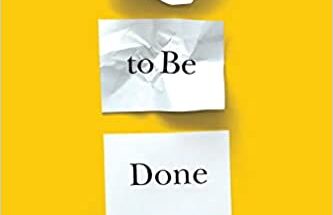It is a truth universally acknowledged that a wonderful review will make little impression on an artist whereas a bad review will be seared onto said artist’s brain and heart. Like a terrible tattoo, a negative review is impossible to ignore.
I used to read my reviews, all of them. Your aunt in Kansas City read my book and posted her thoughts online? Send ‘em to me! Publishers Weekly reviewed my novel? Let’s see what it says! More Amazon reviews? Gimme, gimme!
With my first novel it was exhilarating to know that people had read my words, had experienced my story. They had feelings, sometimes strong, about the characters or plot or setting. But by the end of that first post-novel year, I discovered an important truth about myself. I internalized the bad reviews and had imaginary arguments with the writers of those reviews. Good reviews? At best, they made me smile, and maybe I put them on the fridge, but within days shopping lists covered them. They disappeared from my brain so much faster than the bad ones.
You can’t argue with critics. It isn’t allowed. For some very good reasons, such as people are entitled to their opinions. Also, arguing back rarely results in a triumph, a statement by the critic saying, “I was wrong. You wrote a masterpiece. Can’t imagine what I was thinking when I wrote that review. I was grumpy. My toast had burnt. I hope you’ll accept my sincere apology.” This doesn’t happen.
With my second book, I did what I thought I couldn’t: I didn’t read the reviews. I outsourced the work to my friend, Joe Murphy. If I saw I was reviewed in a trade publication, I’d send Joe the link along with an email asking, “Is it good and worth excerpting?” He might say yes and send along a highlighted portion, and tell me to ignore the rest. He might say ignore it all. Those were hard. Being told something will hurt your feelings makes you want to look at it, test its power, the same way you pick at wounds to see how badly they hurt. Not wise.
I became adept at not reading reviews and I’m better for it. I have far fewer imaginary arguments. My heart doesn’t go thumpity thump over slights made to my prose. I’m not wasting time indulging in an activity that robs me of precious writing time.
But what if those critics are making valid points, you ask. Maybe they’re highlighting weaknesses in your writing you need to pay attention to? Mmm hmmm. Most criticism is nothing more than “I didn’t like this because it varies from my preferred taste.” I’m not going to write differently to accommodate people’s preferences. Too many people. Only one me. The math doesn’t work. And lord knows I don’t need to read them to develop a thicker skin. My skin is 90% rhino hide these days.
I can’t control readers’ reactions to my work, but I can take charge of how I handle it. My choice? Don’t read it unless I’ve been told it’s positive. After all, I already live with my worst critic*, and she’s not going anywhere.
*It’s me, but you probably figured that out.



